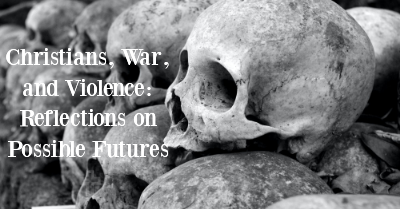|
My blog posts revolve around my interests and vocation as a historian: the intersection of history and contemporary church life, the intersection of history and contemporary politics, serendipitous discoveries in archives or on research trips, publications and research projects, upcoming conferences, and speaking engagements.
I sometimes blog for two other organizations, the Canadian Baptist Historical Society and the Centre for Post-Christendom Studies. The views expressed in these blogs represent the views of the authors, and not necessarily those of any organizations with which they are associated. |
|
Niall Ferguson has rightly observed that “the worst time to live under imperial rule is when that rule is crumbling.” As an empire disintegrates, the loss of centralized power allows for old scores to be settled without fear of government crackdowns. My previous post was on the rise, fall, or return of Christendoms. But what about Christian communities that face the violence that inevitably comes with no effective government at all? Will they continue to face violence or will they take up arms to defend themselves? The horrors of the European wars in the first half of the seventeenth century led Thomas Hobbes to state that the life of humans had become “solitary, poor, nasty, brutish and short,” and what was needed to redress the situation was a strong state – a Leviathan – to supress rampant evils in the land.[1]
While one need not be a card-carrying Hobbesian, Christians can resonate with his recognition that humans often do boundless evils when there is no government to threaten punishment. The sad reality is that the state must suppress sin through a variety of means, including the use of the sword. When it does not, or when there is no central government strong enough to do so, chaos ensues and humans suffer in horrible ways. In many ways, hell is unleashed. If you doubt, consider the plight of Christians around the globe.[2]
There may be times when central government breaks down and people still behave well, however that is always a brief experience predicated on the anticipated return of civil order. But when the state is weak or gone, with no hope for its return, the telos has always been towards injustice and evil – to deny otherwise is to ignore all of human history, not to mention the doctrine of sin. Those steeped in the positive evolution of humanity portrayed in the TV series Star Trek: The Next Generation need a dose of realism, and perhaps should watch Bruce Willis in Tears of the Sun to get a more realistic portrayal of what the world is actually like when there is no civil power to protect the weak and vulnerable. Or watch The Walking Dead to get a sense of how humans act when government breaks down – the real danger is humans, not zombies. Like the consensus of generations of theologians before him, Martin Luther recognized the absolute necessity for the state to use the sword in a fallen world: "If [princes did not use the sword], men would devour one another…No one could support wife and child, feed himself, and serve God. The world would be reduced to chaos. For this reason God has ordained two governments: the spiritual, by which the Holy Spirit produces Christians and righteous people under Christ; and the temporal, which restrains the un-Christian and wicked so that – no thanks to them – they are obliged to keep still and to maintain an outward peace."[3] While some may argue that the corruption of government means that the sword should never be used, or that a just use of violence inevitably becomes distorted into a misuse of violence, a simple reading of history will tell you that life without a government is dangerous indeed. In conclusion, the world has many failed states, with others teetering on collapse.[4] And in those places minority groups such as Christians (and others as well) will suffer. And that suffering will lead to questions about humanitarian interventions required to alleviate a catastrophe such as genocide.[5] And it will also lead to Christians considering taking up arms to protect themselves.[6] (This is blog post #7 in the series entitled “Christians, War, and Violence: Reflections on Possible Futures”.) [1] http://files.libertyfund.org/files/869/0161_Bk.pdf [2] https://www.persecution.com/ [3] Martin Luther, Temporal Authority: To What Extent It Should Be Obeyed (1523). [4] https://en.wikipedia.org/wiki/List_of_countries_by_Fragile_States_Index [5] Pavel Barša, “Waging War in the Name of Human Rights? Fourteen Theses about Humanitarian Intervention,” Perspectives 24 (Summer 2005): 5–20; Terry Nardin, “From Right to Intervene to Duty to Protect: Michael Walzer on Humanitarian Intervention,” European Journal of International Law 24, 1 (2013): 67–82. [6] The rightness or wrongness of such actions is not the focus of this blog – I am merely pointing out “possible futures.” That being the case, however much they can be understood as responses to injustice, the existence of Christian militias raises troubling and vexing theological questions. As does a pastor brandishing an AK-47 in the pulpit.
0 Comments
Leave a Reply. |
Archives
May 2024
|

 RSS Feed
RSS Feed
